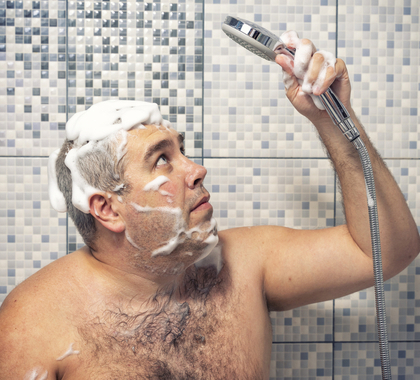The 1992 Energy Policy Act authorized imposition of energy and water efficiency standards on household and commercial products. Consumers have not been thrilled with the new products. As Jeffrey Tucker puts it, “Anything in your home that involves water has been made pathetic, thanks to government controls.” President Trump repealed regulations on showers, but the Biden Administration proposes to reinstate them.
Dozens of products now use significantly less water and energy. For example, showers cannot use more than 2.5 gallons per minute and toilets are limited to 1.6 gallons per flush. While described as efficient, efficiency here is used in an engineering and not economic sense. For engineers, efficiency involves using the least water or energy to accomplish a task. Department of Energy (DOE) engineers define showering, flushing waste, or cleaning dishes, determine the minimum amount of water or energy needed for this, and only allow products meeting this standard to be sold.
Economists define efficiency in terms of consumer preferences. Consumer sovereignty is the basis on which we judge the economy’s performance. With the economic freedom and competition, manufacturers must cater to consumers. We get the showers and toilets we like.
The Energy Policy Act shifted control over product design from consumers to the DOE. All products have numerous dimensions of performance. Consumers choose products based on their personal tastes. Quality is also balanced against the cost because higher quality costs more; we do not always buy the best product on the market. DOE standards prioritize one dimension – energy or water use – over others.
Not surprisingly then, many consumers view the “efficient” products as worse. President Trump picked up on this during his 2016 campaign: “You have sinks where the water doesn’t come out. … You have showers where I can’t wash my hair properly, it’s a disaster!”
The government of a free country serves the citizens. The restriction of consumer choice can only be justified if it makes consumers better off in some way. Saving water is a bogus rationale.
For starters, households account for only a small fraction of water use. Furthermore, water-saving products do not always use less water: people end up repeatedly flushing low-flush toilets. But most significantly, water does not disappear when it runs down the drain. Property treated wastewater can be safely discharged into a river or lake and remains part of the natural cycle.
“Saving water” amounts to reducing the demand on water and sewer systems. Delivering clean water to households requires the use of resources, and the cost is higher when water must be shipped great distances like in western states. Government supplies most water to Americans: cities operate water and sewer systems with the Federal government building large scale water delivery projects and funding most wastewater treatment plants.
Cities, however, generally supply water to households at an artificially low price. And Uncle Sam does not charge users the full cost of water delivered from large projects. Consequently, increased water use strains municipal water and sewer systems.
Elected officials are terrible at building, maintaining, and upgrading infrastructure. Replacing water mains is not an exciting way to spend tax dollars. Efficient household appliances provide a back-door way to avoid investing in water and sewer infrastructure.
Alternatively, suppose cities charged for water based on the full cost and used the proceeds exclusively for maintaining and expanding capacity. Americans wanting a surround shower delivering walls of water would pay a sizable bill every month, but the payments would cover the cost of providing extra water. Americans could enjoy shower freedom.
Although President Trump often spoke about regulations on consumer products, the shower rule was only repealed last December. Deregulation in 2017 would have given Americans time to upgrade their bathrooms, rendering the reimposition less relevant.
Reimposition of the shower rule is not official yet. Like with all proposed regulations, the DOE must accept public comments on the rule. I try to avoid prognostication, but I suspect that public comments will have little impact on the final decision.
[Originally posted on Yellow Hammer News]





